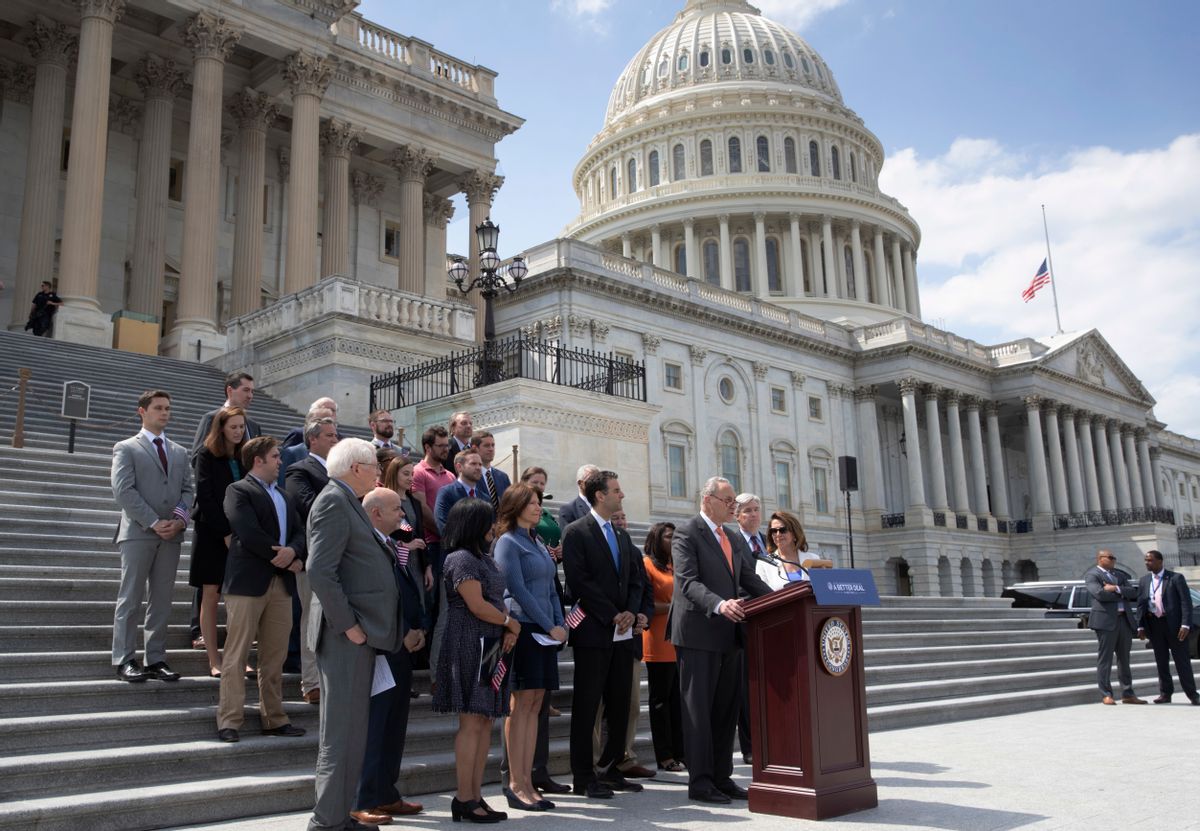In my political dreams, I had thought that Americans might be so angry and disappointed in the silence of Senate Republicans about the most outlandishness of the Trump White House that good candidates would step up to take on the Senate.
Instead, most of those we’ve thought of as strong statewide candidates have opted to run for president instead. By doing so, we are likely now to miss the chance to reset the Senate politically.
In Georgia, Stacey Abrams would have made a formidable candidate to challenge Sen. David Purdue. In Texas, Beto O’Rourke could have built on his strong challenge to Sen. Ted Cruz to run against Sen. John Cornyn, or Julian Castro could have emerged as the Democratic challenger. In Colorado, former Gov. John Hoopenlooper could have run for Senate against Sen. Cory Gardner. Montana Gov. Steve Bullock will also launch a presidential run rather than oppose Republican Sen. Steve Daines.
All would be substantial voices in a Senate, particularly if their elections collectively might turn the majority of the legislative body for the Democrats.
Likewise, Democrats are still scrambling for good candidates in Montana, Iowa and North Carolina. In Arizona, Mark Kelly, husband of Gabby Giffords and a popular national figure, has said he would challenge the first-term Sen. Martha McSally, but in general, most of the big names have opted to run for president or to lead national issues.
Thirty-four seats
In all, 34 Senate seats are up for re-election, though clearly, the orientation of the Senate will focus on perhaps six or eight states. Of course, none of this is accounting for the flow of news. Should the conflicts with Iran, North Korea, Venezuela or China balloon into more conflict, should Afghanistan turn yet more bloody, what passes for election clearly will change; so, too, with whatever happens if House Democrats move to impeach Trump or others in the administration. But this accounting is about numbers and the choice of many prominent Democrats to forgo the Senate.
As Jim Newell argued in Slate magazine, “A new high-profile Democrat seems to decide just about every day that serving in the Senate is a crappy proposition.”
That may be, but a replay of the Obama years in which even with a Democratic president, Mitch McConnell decides whether a nominated Supreme Court justice can be presented for confirmation, seems nuts.
Indeed, there are now seven Democrats in the current Senate running for president, nearly all of them trailing badly behind Joe Biden and Bernie Sanders.
Though it is early, the decisions by candidates in key states to choose presidential bids over Senate races have given many Democratic voters and operatives anxiety. There is time, if these presidential campaigns go nowhere for several of the 22 Democratic candidates, to enter the Senate races in their states.
It is possible, of course, that if the presidential campaigns or intentions of those bigger names never catch fire, their eyes will return to the statewide Senate contests.
In Colorado, where there are a number of announced candidates, Gardner is considered vulnerable because the state has become increasingly Democratic. Susan Collins in Maine is also seen as challengeable because of her support for Trump’s Supreme Court nominees. Arizona, Kelly’s campaign will prove a national bellwether because McSally was appointed to the Senate after John McCain died six months ago.
Still, Democrats need to pick up a minimum of four seats to have a shot at the majority. I’m sure we’ll be seeing the usual blizzard of polling in the available states later this year.
Political backwater
What surprises me is that the Senate is being seen as something of a backwater politically rather than a main event in the elections. This is where the president’s nominees come for confirmation, and all the important policies from healthcare futures to treaty certifications depend on a Senate with a different lineup.
Perhaps the candidates are seeing a different Senate from me. They may see winning a seat for six years in a Republican-majority Senate as a relative waste of time, with Senate Majority Leader Mitch McConnell so adept at turning the Senate to partisan advantage.
According to CNN, of the 22 seats controlled by Republicans, just two of them are in states (Colorado and Maine) that leaned Democratic compared with the nation as a whole in a weighted average of the last two presidential elections. Today, Trump is quite unpopular in both.
But defending Democratic Sen. Doug Jones in Alabama presents a complication. Alabama is a state Trump won by nearly 30 points and remains popular in. Republicans won the aggregate House vote there in 2018 by more than 20 points. That means Jones has an uphill climb for re-election by the numbers.
Democratic pickup opportunities are slimmer than might be imagined. Of 20 Republican-held seats up for election, 16 of them are in states that were 10 points or more Republican than the nation as a whole in a weighted average of the last two presidential elections. None of these races look competitive at this time.
By the numbers, the best chances for Democrats are likely in Arizona, Georgia, Iowa and North Carolina.
CNN says that the good news for Democrats is that beyond Alabama and these three Democratic-held seats, there really aren’t any that Republicans look like they will put into play at this time. That means Republicans probably won’t be able to come close to a filibuster-proof (60 votes) Senate majority even in a good year for them.
Without a serious change in candidates or events, Republicans are favored to maintain control in the Senate.
If that result is avoidable, the presidential fever that draws off good Senate candidates is a shame.




Shares